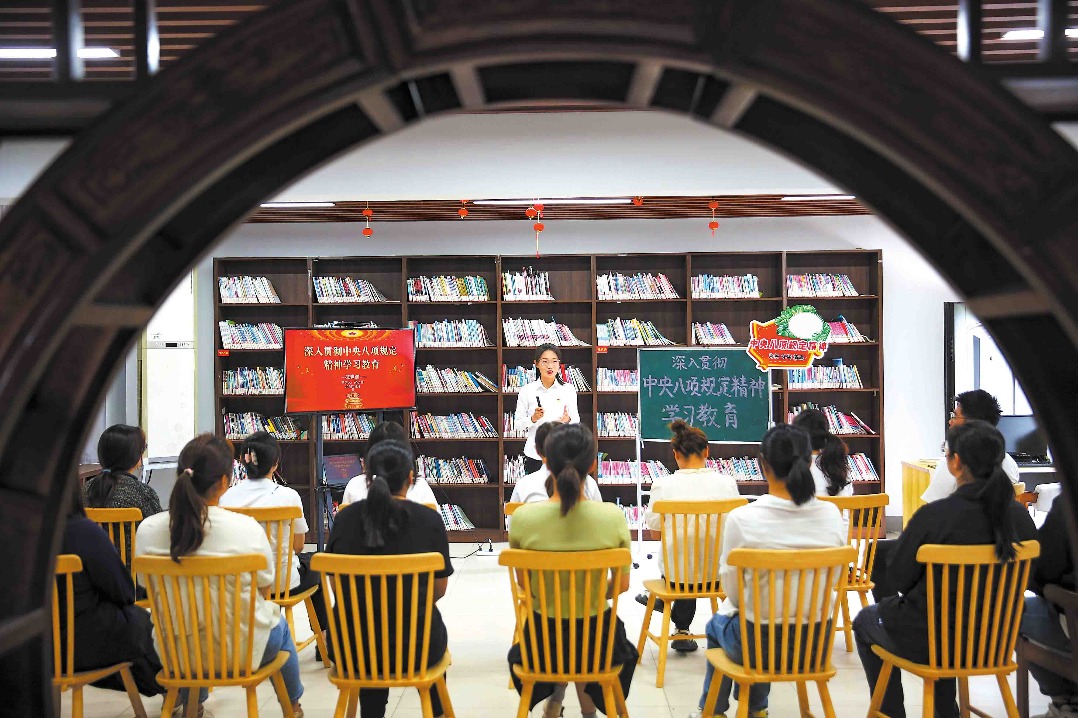Parent-friendly jobs help bridge cribs and clocks
Balancing child-rearing and careers, 'Mom Posts' gaining momentum as nation endeavors to boost birth rate, address manufacturing sector labor shortage


Launched in 2022 and continuously upgraded, the initiative aims to address two persistent challenges: labor shortages in the manufacturing sector and barriers preventing caregivers from rejoining the workforce.
By the end of last year, 534 enterprises in Zhongshan had set up "Mom Posts," with nearly 25,000 such positions officially registered. More than 5,600 people have been employed directly through the initiative, and nearly 12 million yuan ($1.65 million) in subsidies have been disbursed.
These posts offer a rare opportunity for caregivers to balance parenting and career development, said Fan Wei, a labor economics professor at the Capital University of Economics and Business in Beijing. "They support women's employment, promote child well-being, meet corporate labor needs and even influence long-term fertility trends."
The model is now spreading. In December last year, Shanghai launched a pilot program for "Parent-friendly Posts," encouraging employers to create jobs with flexible schedules for employees caring for children under the age of 12.
Dedicated government job service windows across the city have reported growing interest from parents, with some reporting that up to 40 percent of inquiries now come from fathers.
"Flexible jobs have long existed, but they are scattered across sectors and companies," said Hu Yong, a community official in downtown Shanghai. "What we are doing is uncovering these opportunities, matching positions to families who need them most, and encouraging enterprises to create more."
These local policies echo the national agenda. As one of the world's most populous countries, China faces a dwindling number of newborns. Before the numbers started rising last year, both the country's birth rate and number of newborns dropped for seven consecutive years.
To boost its birth rate, China has rolled out a series of policies, including support for second and third children, expanded childcare services, longer maternity leave, and broader aid in education, housing and employment.
In a 2021 policy document on promoting balanced population development, national authorities called for efforts to support work-family balance through flexible employment policies. That vision was further reinforced last year, when a national policy document urged employers to implement telecommuting, staggered work hours and other childcare-supportive arrangements.
Guan Lian, deputy head of the National Human Resources Institute for Service Outsourcing, said parent-friendly posts are a humane and practical response to the pressures faced by dual-role professionals in China. "They help reduce anxiety for a generation caught between work demands and childrearing responsibilities."























